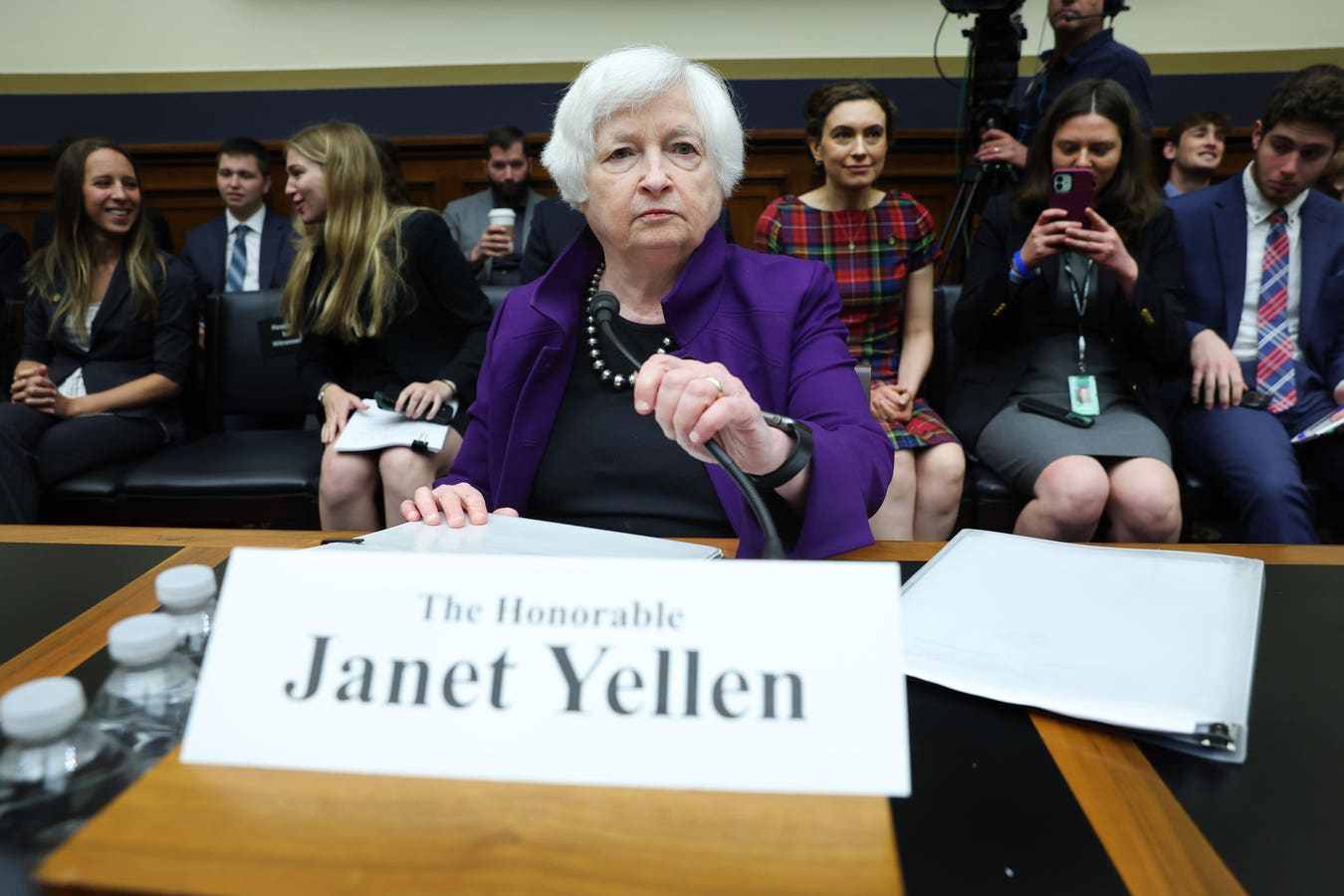WASHINGTON, DC – JUNE 13: U.S. Treasury Secretary Janet Yellen arrives to testify before the House … More
Few are spared the burden of tax increases. Evidence supporting the previous claim can be found in a taxation error committed during the Biden administration; one that if not fixed will undermine one of President Trump’s signature tax accomplishments from his first term, and perhaps second.
For background, during Joe Biden’s lone presidential term his Treasury secretary Janet Yellen took to making nice with Organization for Economic Co-Operation and Development (OECD) countries spanning the globe. Non-U.S. members of the OECD were of the view, like Yellen, that tax cooperation among the countries should be defined by a lack of it lest one of the members lower corporate tax rates too much. Get it?
Without getting into the constitutional lines Yellen was arguably crossing, it will just be said that Yellen erred in colluding with other nations to raise taxes not just on individuals in the U.S., but individuals around the world. And yes, a corporate tax hike is an individual tax hike. That’s because shareholders pay all corporate taxes.
Yellen colluded with the other OECD nations on a corporate tax increase that would be felt by the U.S.’s biggest, most multinational of corporations. Think Amazon, Google, Apple, General Motors, Johnson & Johnson, and realistically any corporation with a global footprint. A lack of tax competition positioned foreign governments to raise taxes on American corporations operating within them. Quite understandably Republicans in Congress want to right this taxation wrong committed under Biden.
The problem is one of strategy. Republicans are ignoring the truth that no one is spared tax increases with their plan to retaliate for an errant tax with another errant tax. See Section 899 of the tax bill making its way through Washington as you’re reading this. Though the hearts of Republican members of Congress are in the right place as they strive to get OECD countries to reduce the foreign tax burden on U.S. corporations, a retaliatory tax increase on the U.S. subsidiaries of foreign corporations is the wrong way to go about it.
That is so because capital is capital, and it’s competed for globally. With Section 899, Republicans are trying to test the truism about two wrongs not making a right. In other words, they’ll levy taxes on foreign investment at rates up to 100 percent as a retaliation for excessive foreign taxation of U.S. earnings overseas. President Trump should beware.
Foreign investment into the U.S. increased to the tune of 35 percent after the 2017 passage of his Tax Cuts and Jobs Act. Without cheering on all aspects of Trump’s economic program, it’s notable that he desired a return of investment and production to the U.S., and as the increase in foreign investment attests, he succeeded to an impressive degree.
Section 899 threatens his tax and investment achievement exactly because it levies such a huge tax burden on foreign investment in the U.S. At such high rates of taxation on U.S. subsidiaries, the incentive for foreign investors to pull out of the U.S. will be substantial.
Investment goes where it’s treated well, and Section 899 treats it appallingly. Which means Section 899 must be stricken from the Senate version of the tax bill. In this case, good politics is good economics too.




